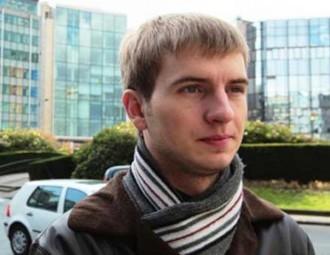Supreme Court leaves Andrei Haidukau’s sentence without change

The Supreme Court of the Republic of Belarus has rejected activist’s appeal and ruled to uphold the verdict.
The meeting where his appeal has been considered was closed and only lawyers where present.
Let us recall that on July 1, a judge of the Vitsiebsk Regional Court sentenced Andrei Haidukau, currently 23, to one and a half years in prison, finding him guilty of attempting to “establish contacts with foreign intelligence agencies without signs of high treason,” an offense penalized under a recently adopted appendix to the Criminal Code’s Article 356.
Andrei Haidukau directed a grievance to the sentence of Vitsiebsk court in the middle of July. Recently “SB. Belarus Today” spread the information presumably taken from the materials of the criminal case or during the secretive trial, before the sentence legally came into force. Legal Transformation Centre “Lawtrend” addressed its appeal to the Attorney General's Office in relation with the pro-government paper’s publications. In this regard human rights fighters demanded to stop spread of one-sided information and to perform public prosecutor's control of the circumstances in which the materials of the case were disclosed.
Belarusan human rights defenders recognize Andrei Haidukau as a political prisoner. Thus, Human Rights Centre “Viasna” and the Belarusian Helsinki Committee made a statement, urging the authorities to “immediately release Andrei Haidukau, to overturn the illegal sentence imposed by the court and to guarantee its revision, subject to the right to a fair trial.”
Human rights fighters claim that “the authorities failed to provide any justification for the consideration of the case in a closed court session”, which can be motivated “by a desire to conceal from the public the unlawful methods of the investigation and the provocation of the accused in the commission of a crime”.
“The sentencing of Andrei Haidukau is groundless and politically motivated, as it is largely aimed at increasing the role and significance of the KGB in the State using methods that are unacceptable in a democratic society, while deprivation of liberty was used in violation of the right to a fair trial, and other rights and freedoms guaranteed by the International Covenant on Civil and Political Rights, and the duration of detention is clearly disproportionate (inadequate) to the offense of which the person has been convicted”, is said in the statement.
-
03.01
-
07.10
-
22.09
-
17.08
-
12.08
-
30.09



























